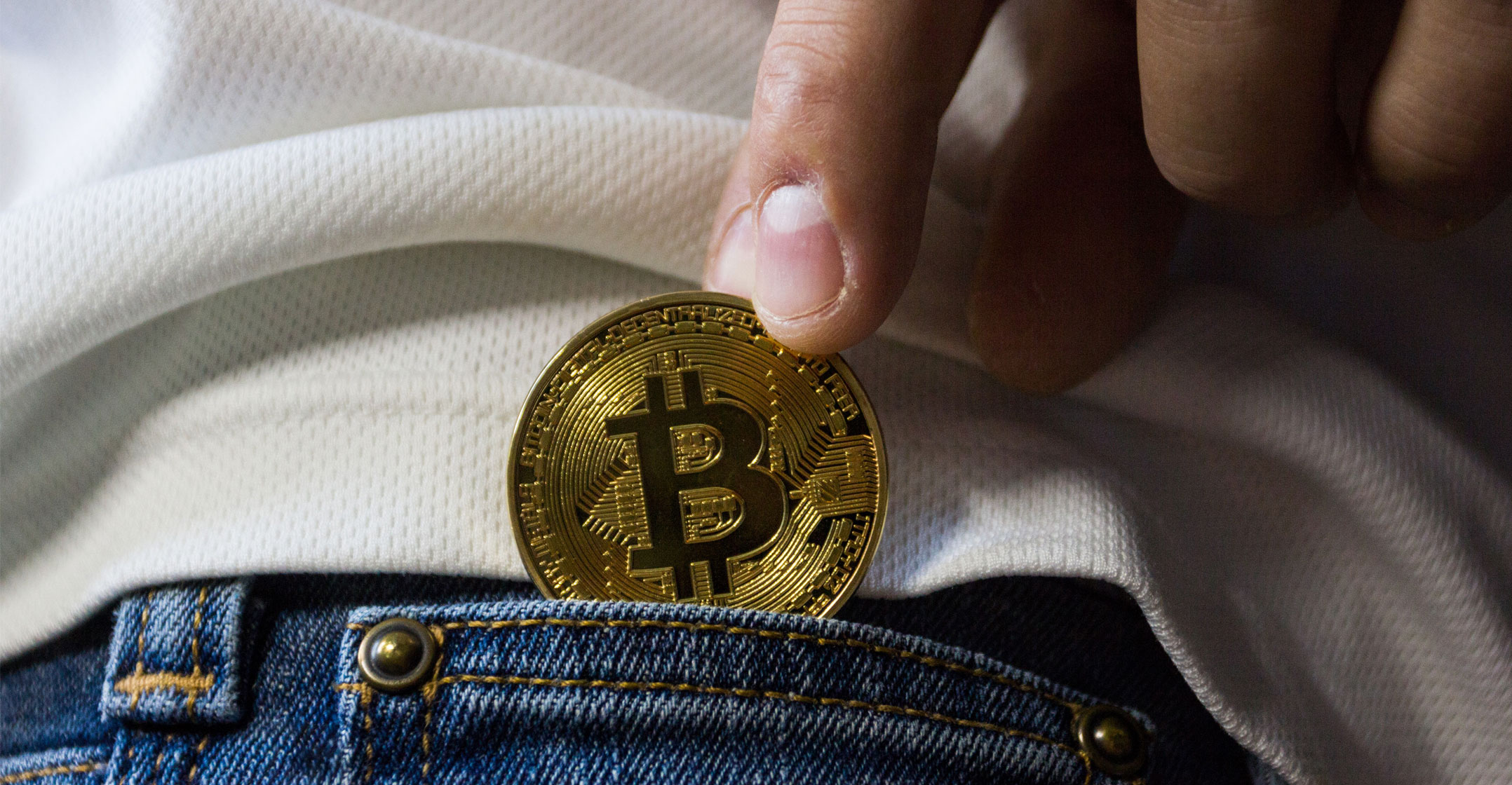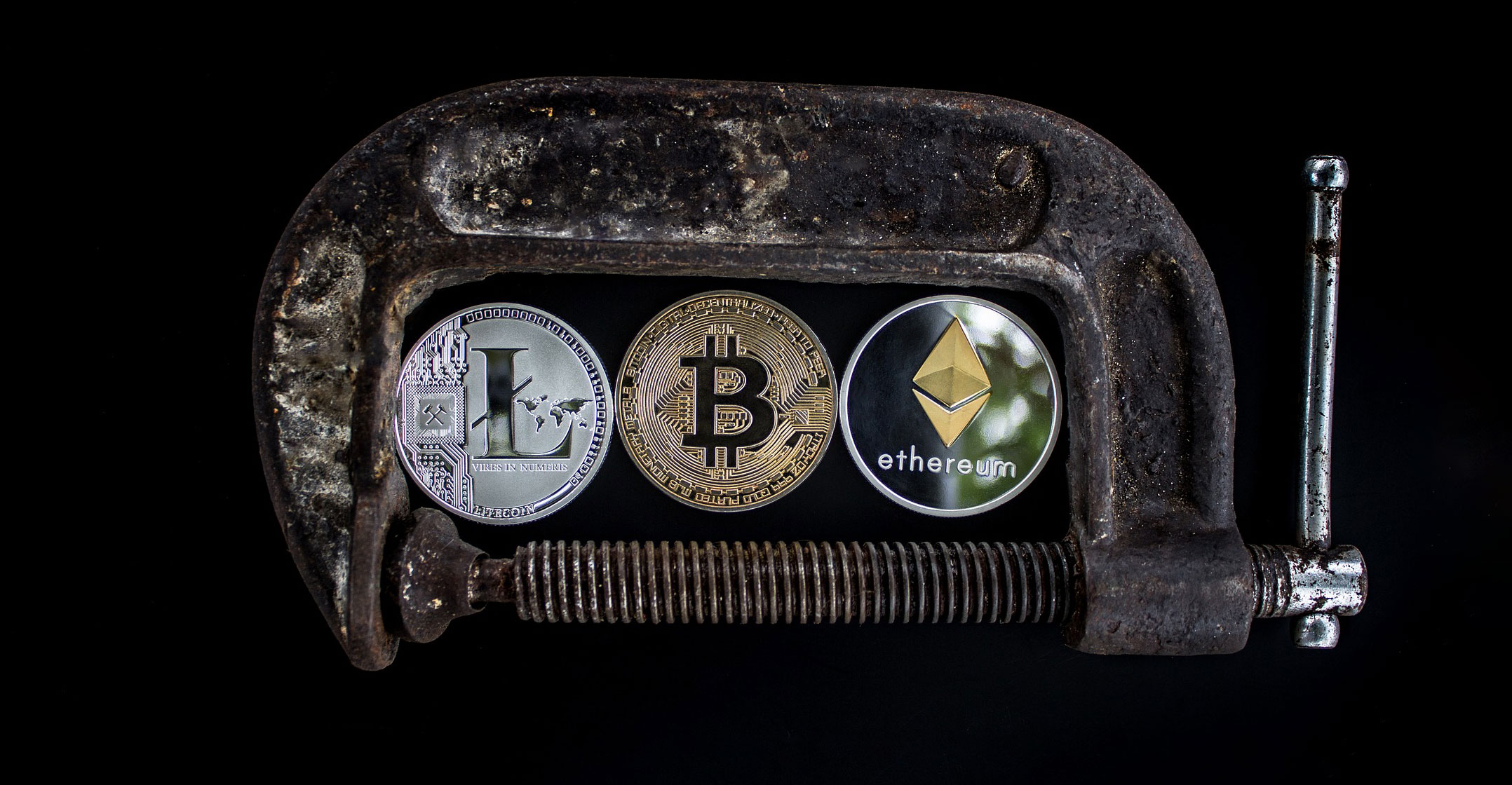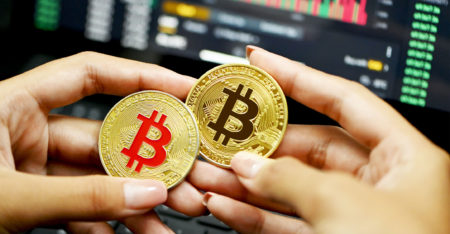 Bitcoin has a lingering problem that few people are talking about amid the renewed exuberance of the recent price surge.
Bitcoin has a lingering problem that few people are talking about amid the renewed exuberance of the recent price surge.
Hardly anyone is using the world’s largest cryptocurrency for anything beyond speculation. Data from New York-based blockchain researcher Chainalysis shows that only 1.3% of economic transactions came from merchants in the first four months of 2019 and that little changed over the boom and bust cycles of the prior two years.
Even though major companies like AT&T now let customers pay with cryptocurrencies, the problem is that few speculators want to use the digital coins to pay for wireless services when the digital asset’s price might surge another 50% in a matter of weeks. That’s become the main dilemma with the cryptocurrency: bitcoin needs the hype to attract mass appeal to be considered a viable electronic alternative to money but it has developed a culture of “hodlers” who advocate accumulation rather than spending.
“Bitcoin economic activity continues to be dominated by exchange trading,” Kim Grauer, senior economist at Chainalysis, said in an e-mail. “This suggests bitcoin’s top use case remains speculative, and the mainstream use of bitcoin for everyday purchases is not yet a reality.”
Chainalysis tracks service providers including BitPay which provide payment processing services to merchants. BitPay, which recently was picked as a payment services provider for AT&T, processed US$1-billion in both 2017 and 2018, BitPay said in an e-mail.
Here’s how it works. A customer pays in bitcoin and BitPay verifies the funds and accepts the bitcoin on behalf of the business. The business has the option to take bitcoin or fiat currency or a split. If the business chooses to take 100% fiat currency, the dollars are deposited into the business’s bank account the next business day minus a 1% fee BitPay charges for the entire process. The business is protected from any bitcoin price volatility.
Volatility
Bitcoin has more than doubled since January to US$9 000. The original cryptocurrency surged 1 400% to almost $20 000 in 2017, before tumbling more than 70% last year.
“We are still tracking a little up from last year,” said Sonny Singh, chief commercial officer at BitPay. “The consumers in America generally spend more when the price of bitcoin goes up. They’ve gone the double, they want to sell some.”
While BitPay’s transaction volume may seem massive, Visa processed almost half a billion transactions every day last year, and handled $11.2-trillion in payment and cash volume in 2018.
 Overall merchant activity is still down from its peak in late 2017, when merchant services accounted for 1.5% of total bitcoin activity during the peak of the crypto bubble. Use in merchant locations dropped to 0.9% last year, when the price of bitcoin plunged before starting to recover in 2019, according to Chainalysis.
Overall merchant activity is still down from its peak in late 2017, when merchant services accounted for 1.5% of total bitcoin activity during the peak of the crypto bubble. Use in merchant locations dropped to 0.9% last year, when the price of bitcoin plunged before starting to recover in 2019, according to Chainalysis.
Transactions related to exchanges still accounted for 89.7% of all bitcoin activity between January and April of this year, down only slightly from 91.9% for all of last year, Chainalysis found.
The trend could be a troublesome sign for bitcoin’s longevity. Its anonymous creator, Satoshi Nakamoto, envisioned bitcoin’s use in everyday transactions, from buying coffee to paying for rental cars. More recently, investors have been emphasising that bitcoin has instead morphed into a digital version of gold — an asset that holds value at times of economic uncertainty, as bitcoin is uncorrelated to stocks or bonds. That may be wishful thinking, though.
“I’m not expecting bitcoin to be used in any commerce anytime soon,” Kyle Samani, co-founder of Austin, Texas-based crypto hedge fund Multicoin Capital Management, said in an e-mail, adding “that the store of value (AKA digital gold) hypothesis is unlikely to be the ultimate winner on a decade+ timescale”. He is still bullish on bitcoin, Samani said.
Dark net, or illegal, activity has increased, as have peer-to-peer bitcoin transactions, Chainalysis found.
Efforts to ramp up merchant activity continue. A start-up called Flexa recently said it would let people pay using certain cryptocurrencies at merchants like Nordstrom and Whole Foods Market. Flexa already allows people to spend bitcoin, ether, bitcoin cash and gemini dollar at more than 30 000 locations in the US.
“Bitcoin is the leader today, and may continue to be the leader due to having the largest network effect and ‘brand’, but I don’t think bitcoin itself will ever be ‘money’,” Jeff Dorman, chief investment officer at Los Angeles-based Arca, said in an e-mail. “Bitcoin doesn’t have to be money to be a success. A lot of great technologies end up being strategically important without living up to their initial road map.” — Reported by Olga Kharif, (c) 2019 Bloomberg LP




